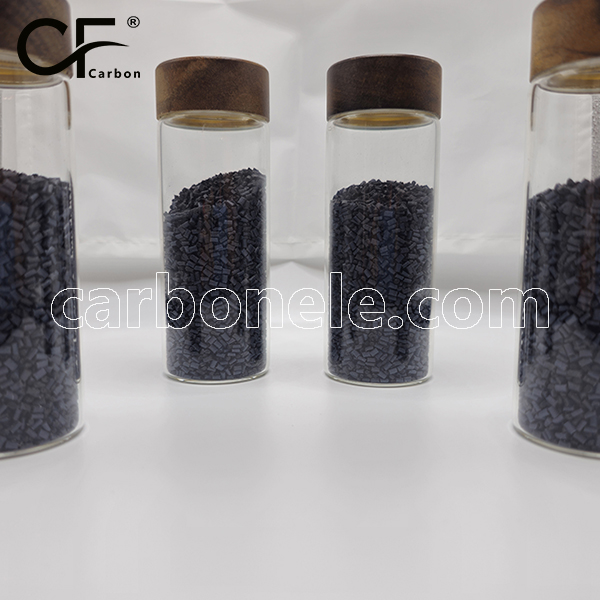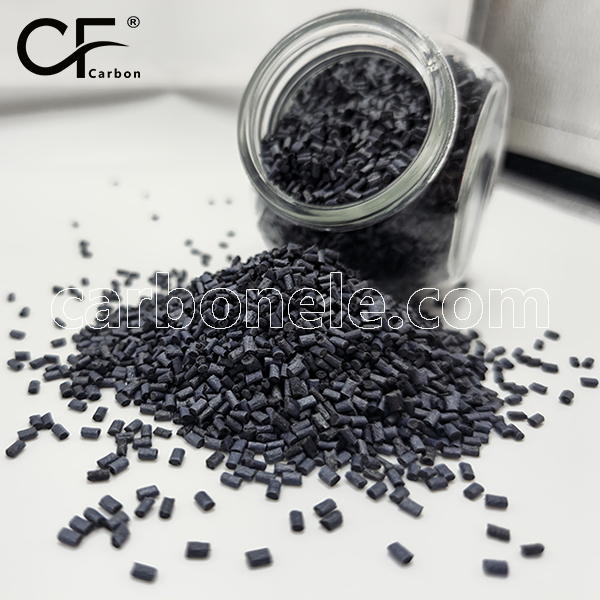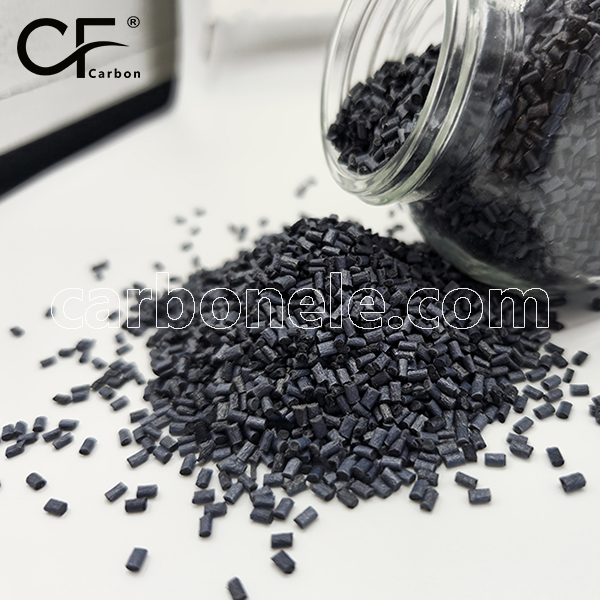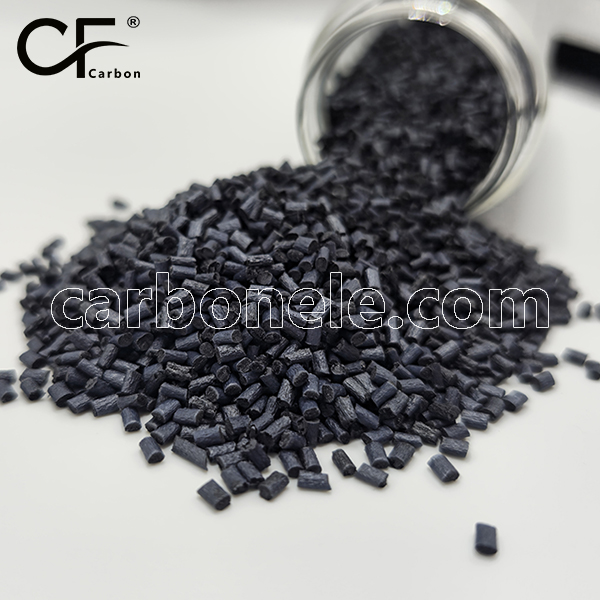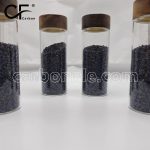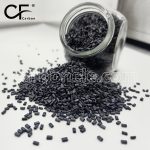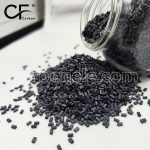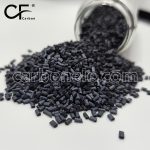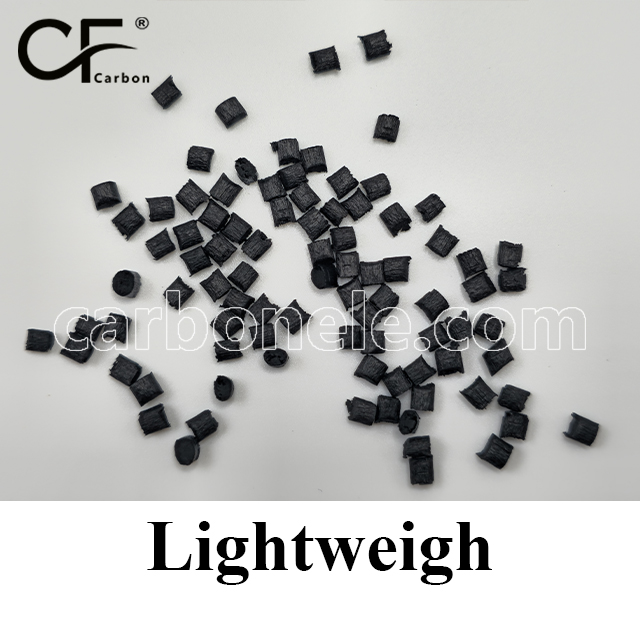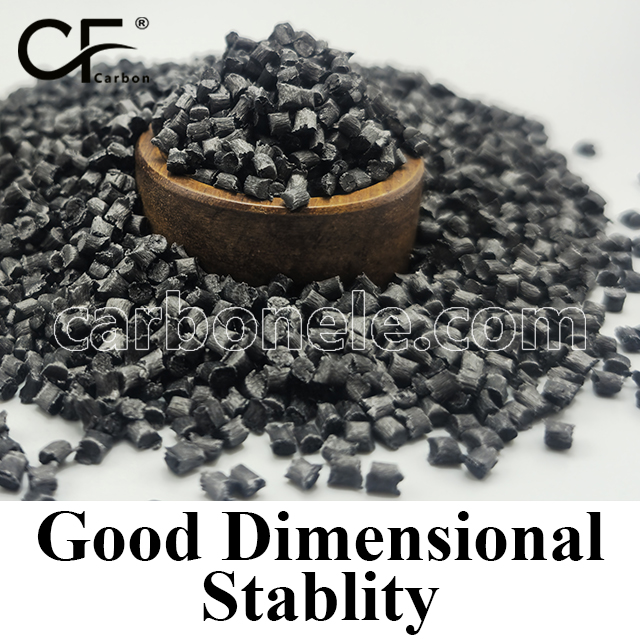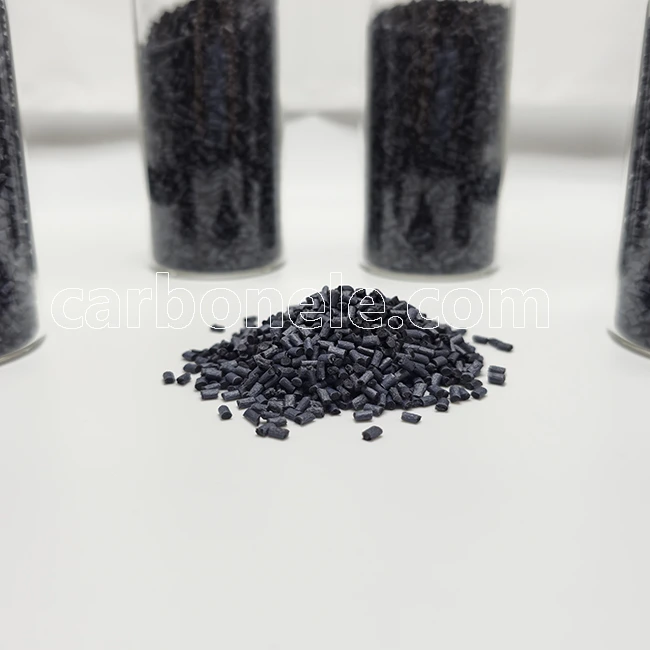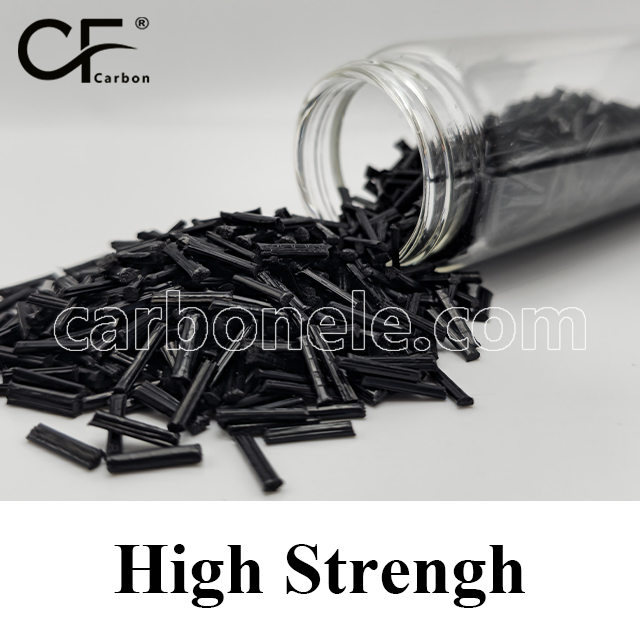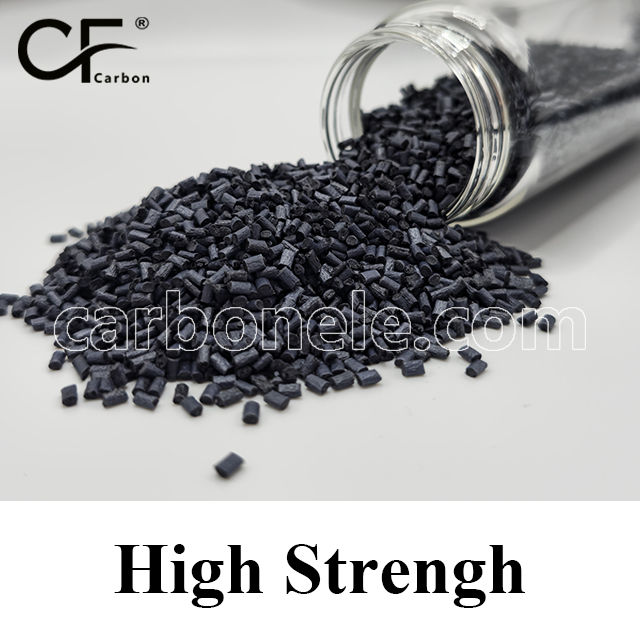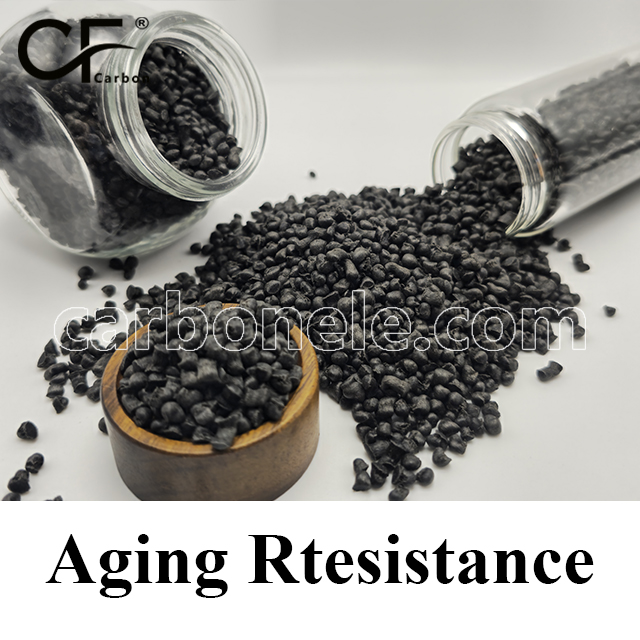
PPS CF Pellets PPS-LCF Plastic Raw Material Granules
PPS CF Pellets, with added carbon fibers, possess high strength & rigidity for withstanding large forces, excellent heat resistance, good chemical corrosion resistance, low friction coefficient, and outstanding dimensional stability, suitable for various applications.
- Manufacturer: Carbon New Material
- OEM/ODM: Acceptable
- Color: Black
- Free Samples: ≤25kgs
- MOQ: 100kgs
- Port: Xiamen
- Model: PPS-CF-BCA3
- Fillers: Carbon fiber
PPS CF Pellets PPS-LCF Plastic Raw Material Granules
I. What’re PPS CF Pellets?
PPS CF Pellets mainly consist of polyphenylene sulfide (PPS) resin and carbon fibers.
The types of carbon fiber used as reinforcers are divided into long carbon fiber and short chopped carbon fibers.
The content of carbon fibers usually varies according to specific product requirements. Generally, it accounts for a certain proportion to achieve the reinforcing effect. For example, there are commonly products filled with different proportions of carbon fibers such as 10%, 20%, and 30%. The carbon fibers are evenly dispersed in the PPS resin matrix and closely combined with PPS to form the composite material together.
II. What does PPS CF Pellets Features mainly?
– High Strength and Rigidity: The addition of carbon fibers significantly enhances the tensile strength and rigidity of the material, enabling it to withstand relatively large external forces. PPS CF Pellets are highly suitable for manufacturing components with stringent requirements for structural strength, such as parts around the automobile engine and some load-bearing structural components in the aerospace field.
– Excellent Heat Resistance: It can be used for a long time in a relatively high-temperature environment with a high heat distortion temperature, easily meeting the needs of many high-temperature working conditions. For example, PPS-CF granules can maintain stable performance when used in components close to heat sources in electronic and electrical equipment.
– Good Chemical Corrosion Resistance: PPS CF Pellets show excellent tolerance to various chemical substances and can operate reliably in complex environmental scenarios with the risk of chemical corrosion. PPS CF Pellets can be applied to chemical pipelines, storage containers, and other places that may come into contact with various chemical reagents.
– Low Friction Coefficient: The surface of the material is relatively smooth with a low friction coefficient, which helps reduce the wear and energy loss during the movement of components. PPS CF Pellets are suitable for manufacturing mechanical components that require frequent sliding or rotation, such as bearings and gears.
– Outstanding Dimensional Stability: Under different environmental conditions (such as changes in temperature and humidity), it can maintain relatively good dimensional accuracy, ensuring the stable and reliable quality of the manufactured products. This is particularly important for some precision instruments or components with strict dimensional requirements.
Carbon fiber-reinforced thermoplastic composites produced by different manufacturers each have their own performance emphases. In terms of carbon fiber-reinforced modified thermoplastic composites, differences in performance will exist due to variations in the matrix resin, differences in the content and type of carbon fibers, as well as factors such as production processes.
If you’d like to learn more on carbon fiber filled pps plastic granules (PPS-CF-BCA3) or other CFRTPs, please click here or directly contact Carbon New Material.
Contact Us
If you want to obtain information such as product specifications, performance, and price, choose a suitable product according to your own needs. Meanwhile, you can ask the manufacturer to provide samples for testing to ensure that the material meets your usage requirements. If you are interested in purchasing this composite material, please contact the manufacturer Carbon (Xiamen) New Material directly.

Frequently Asked Questions
Carbon (Xiamen) New Material Co., Ltd. aims to provide buyers with "one-stop" worry-free high-quality services. Here you can find all information about carbon fiber engineering plastics. If you still have questions, please send us an email for consultation!
-
How can I contact the manufacturer of a product that interests me?
When you find a product you are interested in, you can contact the manufacturer directly by sending an email and we will get back to you as soon as possible.
-
How do I find the products that interest me?
All you need to do is enter the keyword, product name in the search window and press the Enter key on your keyboard. Your search results page will then be displayed. You can also search within the product category pages on the home page. Each category is divided into subcategories, allowing you to refine your search and find products that interest you.
-
Where will I find a buying guide?
Please contact our after-sales service directly and we will provide you with a comprehensive operating guide.
-
What are CF Reinforced Thermoplastic Composites?
CF Reinforced Thermoplastic Composites are materials where carbon fibers are incorporated into a thermoplastic matrix. They combine the strength and stiffness of carbon fibers with the processability and recyclability of thermoplastics. For instance, they are used in automotive parts like bumper beams.
-
What are the benefits of CF Reinforced Thermoplastic Composites over traditional composites?
The key benefits include faster production cycles, easier recyclability, and better impact resistance. They also offer design flexibility. An example is in the manufacturing of consumer electronics casings where complex shapes can be achieved more easily.
-
How are CF Reinforced Thermoplastic Composites processed?
Common processing methods include injection molding, extrusion, and compression molding. Injection molding is widely used for mass production. For example, in the production of small components for the medical industry.
-
What industries use CF Reinforced Thermoplastic Composites?
They are utilized in aerospace, automotive, medical, and sports equipment industries. In aerospace, they can be found in interior components. In the medical field, they might be used in prosthetics.
-
How does the carbon fiber content affect the properties of the composites?
Higher carbon fiber content generally leads to increased strength and stiffness but may reduce ductility. A moderate content is often balanced for specific applications. For example, a higher content might be preferred in structural parts of a race car.
-
What are the challenges in using CF Reinforced Thermoplastic Composites?
Challenges include higher material costs, complex processing equipment requirements, and ensuring uniform fiber dispersion. Issues with adhesion between the fibers and the matrix can also arise. An example is in achieving consistent quality in large-scale production.








